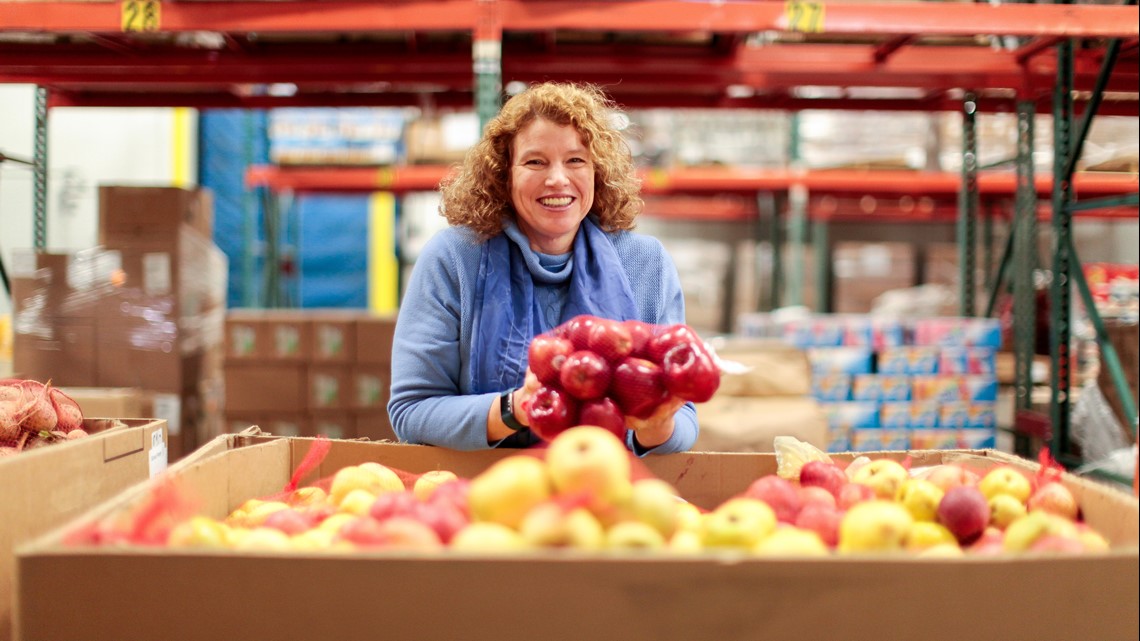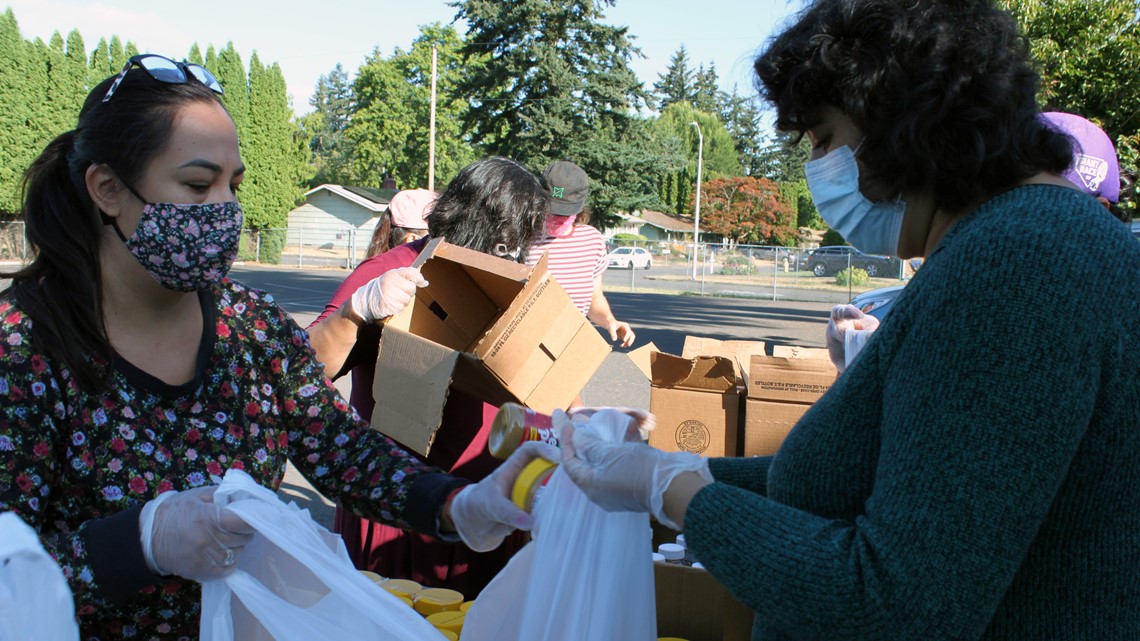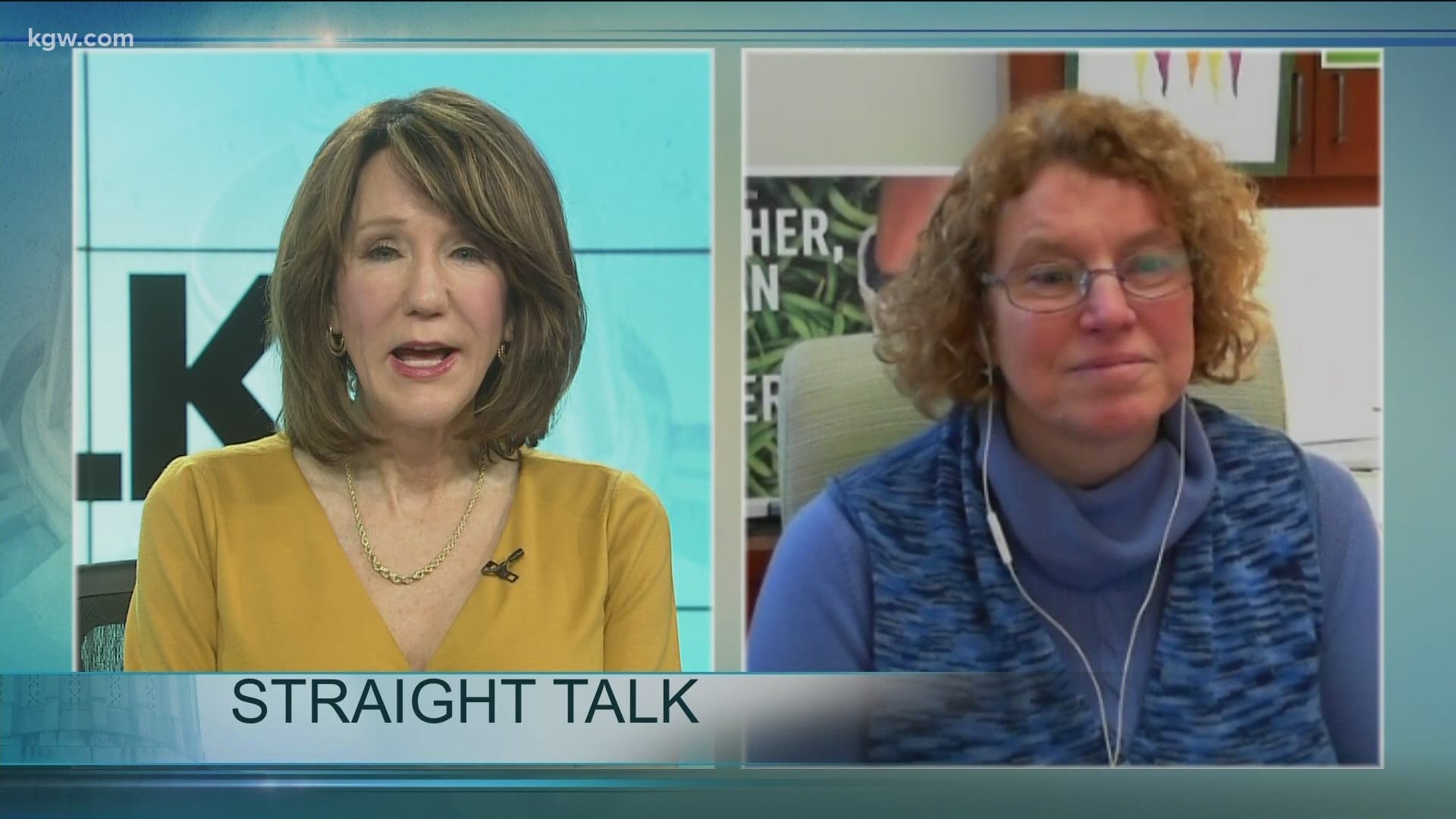PORTLAND, Ore. — Since the pandemic began in early 2020, the rate of hunger in Oregon has nearly doubled. Based on research done by Oregon State University, the number of people worried about feeding their families went from about one-in-nine to between one-in-four or five Oregonians.
Oregon Food Bank CEO Susannah Morgan said many families face the question of whether to pay for food or rent.
"It's the worst rate of hunger we have seen in a century," she said.
Morgan was a guest on last week's episode of "Straight Talk."
She said the 10,000 people who work at the Oregon Food Bank, from its five facilities, to 21 regional food banks, and 1,400 partner food pantries throughout Oregon and SW Washington, are working tirelessly to meet the need.
Help from Oregon Legislature
Money from the Oregon Legislature's emergency board in December helped. The board gave the Oregon Food Bank (OFB) network $2.9 million.
Morgan said that money has already been turned into food and distributed to partner agencies across the state. But, the need is still great and ongoing.
"We anticipate we will need that same amount in another eight weeks or so in order to see us through the spring," she said.
OFB advocates for legislation to help ease hunger
The OFB is also advocating for legislation to help ease the hunger rate in Oregon. Morgan said the pandemic has made it harder for a lot of Oregonians to pay rent and stay in their homes.
It's pushing for an extension of the foreclosure and rent moratoriums, and more funding to address emergency housing and homelessness.
"We know hunger is a function of all the things a family needs to afford," Morgan said. "Rent or food? If we can help ensure people can stay in their homes and are also able to meet their rent, they will be more food secure."
Help needed for college students
Even before the pandemic, the single most likely person to be food insecure was a two- to four-year college student. Morgan said 40% of college students face hunger.
The OFB is pushing legislation to help support students on college campuses.
"Even in these difficult times, we want to follow that through and make sure that we are taking care or all of us at all stages of our lives," Morgan said.
Erasing stigma of hunger
Before the pandemic, about 890,000 Oregonians and Southwest Washingtonians accessed food assistance. That number has grown to between 1.2 million and 1.5 million.
Morgan said they regularly hear from people at their food pantries who say they've never had to ask for help before. She wants them to know help is available and they should not be afraid or ashamed to take it.
"I can imagine for me and my family how hard it might be to face the fact you have come down to the end of the week with no food in the pantry and kids' bellies are empty, and how hard it is to ask for help that first time," she said.


How to get food if you need it
She encouraged anyone facing hunger to go to the Oregon Food Bank's website to find a food pantry near them. Food is available to anyone who needs it with no identification required.
"We want to make sure no one experiences a hungry belly," Morgan said. "It's your neighbors helping you and we know when you are in a position to help, you will help, too," she said.
The largest food program in Oregon and in the nation is the Supplemental Nutrition Assistance Program, or SNAP, formerly known as food stamps. Morgan said data shows for every dollar spent on SNAP, it has an economic benefit of $1.50 to $1.80 in local communities. She said that's especially important in rural Oregon where they really need the help right now.
She encouraged families experiencing hunger to access the SNAP program by visiting the Oregon Department of Human Services website.
"They're really nice and effective folks there who will get you set up with this lifeline during these difficult times," Morgan said.


How to help
For those who would like to help, Morgan said cash is the best option. She said it limits person-to-person contact and can be sent to locations that need help immediately. Also, cash donations stretch further than individual donations of food.
"Because we are buying by the truckload, we say we can get three meals for ever dollar donated," she said.
To donate visit, oregonfoodbank.org/donate.
Straight Talk airs Friday at 7 p.m., and Saturday and Sunday at 6:30 p.m. Straight Talk is also available as a podcast.

